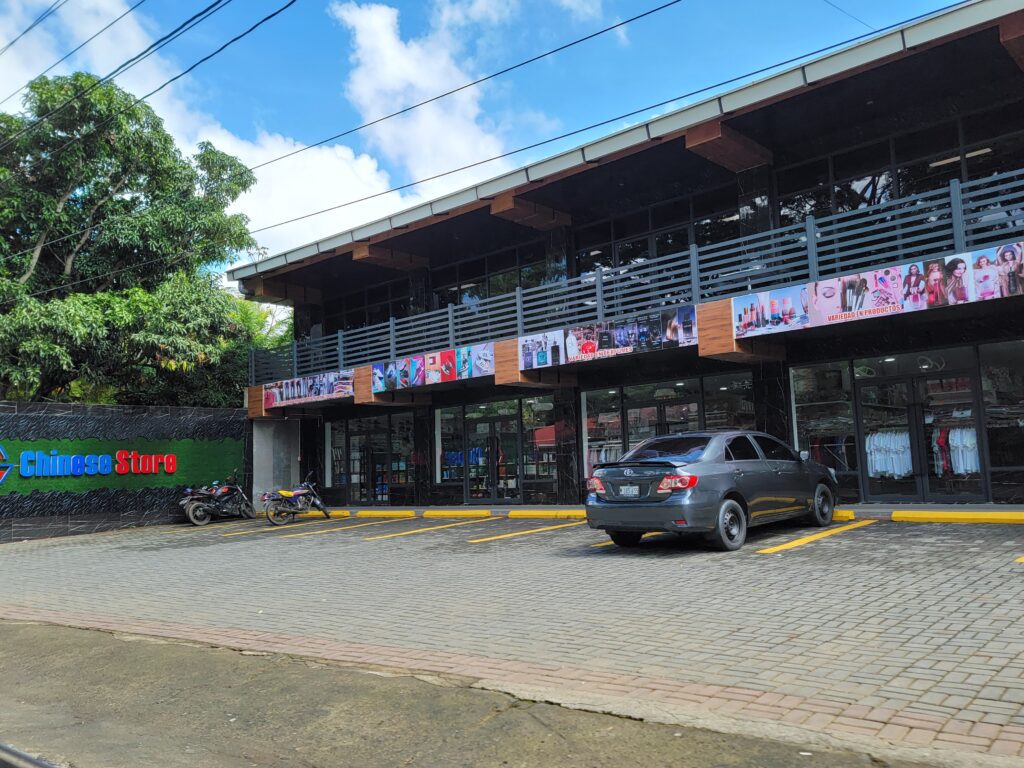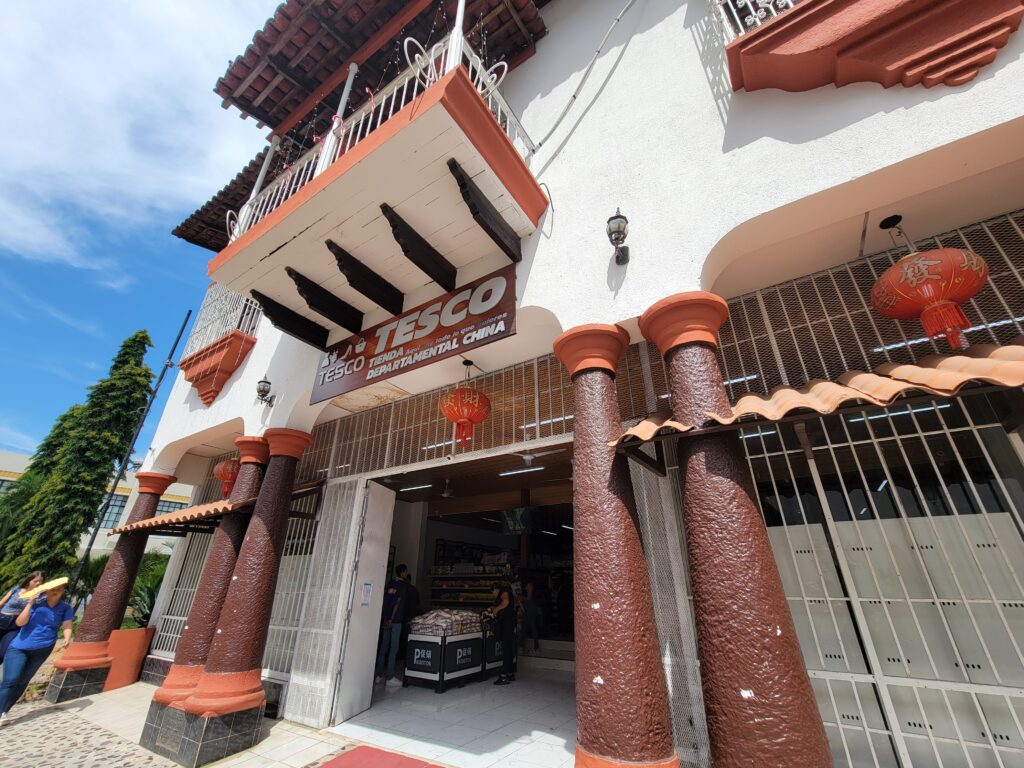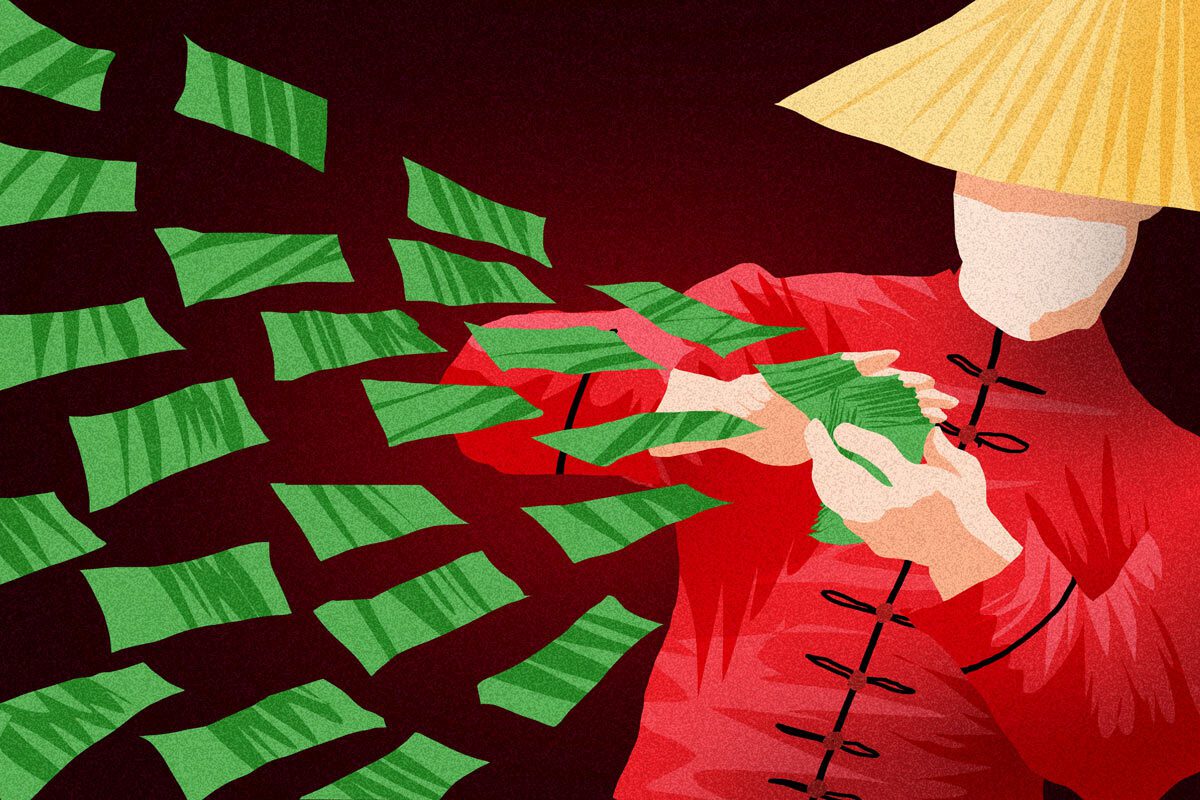The hardware store where Lucía worked for eight years shut down abruptly. Located in a municipality in the department of Estelí, northern Nicaragua, the small family business, which had existed for over fifteen years, disappeared within days, replaced by a massive Chinese store offering exotic products and deals. “They rented it to the Chinese,” said the 28-year-old, who agreed to speak with DIVERGENTES on the condition of anonymity.
Lucía, who managed the store, recounted how two Chinese citizens and a Nicaraguan showed up one day asking to speak with the owners. After a two-hour meeting, just a couple of days later, the business owners informed their staff they would be closing down.
The company was not in financial trouble, but profits had significantly declined in the last quarter of 2024. The Chinese offer of $5,000 per month was enough to convince the owners to shut down their long-running business and make way for the Asian store.
“They were very honest with us. It made more financial sense for them to rent it out, earn that money, and live stress-free instead of worrying about paying their three employees. The Chinese even bought the remaining inventory, and within two days, their store was up and running,” Lucía explained.
Small Entrepreneurs: The most affected

Just like Lucía‘s hardware store, other Chinese buyers also visited businesses in strategic areas of the town. Within weeks, bakeries, second-hand clothing shops, and food distributors closed down to make room for Chinese stores.
While renting out properties is highly profitable for business or property owners, the most affected are small entrepreneurs and employees who relied on these spaces to keep their businesses running and support their families.
In Lucía’s municipality, DIVERGENTES identified at least two other entrepreneurs who also had their leases terminated by landlords eager to accept higher offers from the Chinese. Not only were contracts canceled, but landlords even compensated tenants for the remaining months of their agreements.
Chinese-Style Gentrification?
“The Chinese have driven up rental prices. Since they pay so well, property owners now expect either more Chinese tenants or for a local to match their high offers. The ones who suffer most are us because we’re left in limbo,” said an entrepreneur who spoke with DIVERGENTES anonymously.
In December 2024, during a tour of different parts of the country, DIVERGENTES documented the rapid expansion of Chinese businesses, which have proliferated since 2023 due to the political alliance forged between the Ortega-Murillo regime and the People’s Republic of China.
DIVERGENTES visited some of the main cities in Nicaragua’s Pacific region to document the emergence of these businesses, which have sparked speculation about the benefits the regime grants to Chinese investors for their widespread openings.
Rivas is one of the departments where the arrival of Chinese businesses has been slower. Some of the new stores in the area include Bazar Oriental, Grandes Almacenes de China, MTMAX, Centro Comercial China Wanda, Tienda China, and Abasto Comercial Jasmin, most of which are located near or within the central market of the department’s capital.
Chinese Money Raises Doubts and Concerns

Chinese citizens always arrive in pairs, accompanied by a Nicaraguan. The latter introduces the foreigners and presents their interest in renting properties for five to ten years. If the property owner hesitates, they immediately throw out an opening offer of $5,000.
“Depending on the location and size of the property, they offer even more money and are willing to renovate the space to suit their needs,” said Josué, a Nicaraguan who has been approached twice by Chinese investors interested in leasing his properties.
Josué lives in a municipality in Granada and requested anonymity for security reasons. His family owns several properties rented out for business purposes. The two largest ones caught the attention of the Chinese investors, who made rental offers.
“They first asked about what we sell and whether it was profitable. At first, I didn’t find their questions unusual since I thought they wanted to buy something. The next day, they returned with a formal offer,” said Josué, who manages the family’s businesses with his father.
Tempting Offers from Chinese Investors
The Chinese investors offered to pay a monthly rent of $10,000, plus an additional $20,000 for renovations. The offer, which Josué described as mind-blowing, seemed even more surreal when they proposed a 10-year lease.
“I’m not easily swayed by money; it’s important, but my father and I always analyze everything carefully. The offer was incredible, but we had too many doubts. The contract terms, and our position as Nicaraguans compared to the advantages the Chinese might have due to their close ties with the government, made us turn down the first offer,” Josué explained.
The concerns raised by the “Chinese cash wave” cannot be ignored in Nicaragua’s current context, according to legal expert Juan Diego Barberena. The exiled Costa Rican-based lawyer warned that the Free Trade Agreement between the Nicaraguan government and China might conceal special privileges for foreign investors, putting Nicaraguans at a disadvantage in contractual agreements like these.
Nicaraguan Landlords Must Avoid Getting Tricked

“There’s a risk due to a lack of knowledge about what we’re dealing with. People need to read the fine print carefully to ensure they’re not signing a contract that puts Nicaraguans at a disadvantage,” Barberena stated. He emphasized that, legally, Chinese tenants cannot claim ownership, as Nicaraguan laws do not permit this type of property control in rental agreements. However, he hinted that in a country without strong legal protections, anything could happen.
Barberena added that the most affected in these deals are local business owners, who not only have to compete with Chinese money offering ten times more for rent but also with the privileges foreigners enjoy due to the trade agreement.
“All of this undermines free competition and local businesses. It’s not just about the advantages given to the Chinese; they also enjoy tax exemptions that create unfair competition,” the lawyer explained.
A Test-and-Learn Approach
Ultimately, Josué and his father declined the Chinese investors’ offer. Risking their assets was not an option, especially given the many uncertainties surrounding the proposal.
However, the Chinese investors approached them again—this time for a much smaller property in a strategic location. This time, the offer was lower but still highly competitive compared to standard rental rates in Nicaragua.
“They were surprised to see me running the business. Maybe that’s why they adjusted their expectations and, without hesitation, offered $7,000 per month for a five-year lease,” Josué recounted, confirming that he accepted the deal as a sort of trial-and-error experiment.
Josué’s doubts stem from the Sandinista regime’s failure to defend Nicaraguans in previous cases involving foreign investors. He cited the failed interoceanic canal project and the expropriations the regime attempted against hundreds of farmers whose lands were in the project’s path.
“We’ll see how it goes—if it works out or if there’s a catch. The rental income is great, much more than we usually get from that property. But with these people, you never know, so we’ll take it one step at a time,” Josué concluded.





